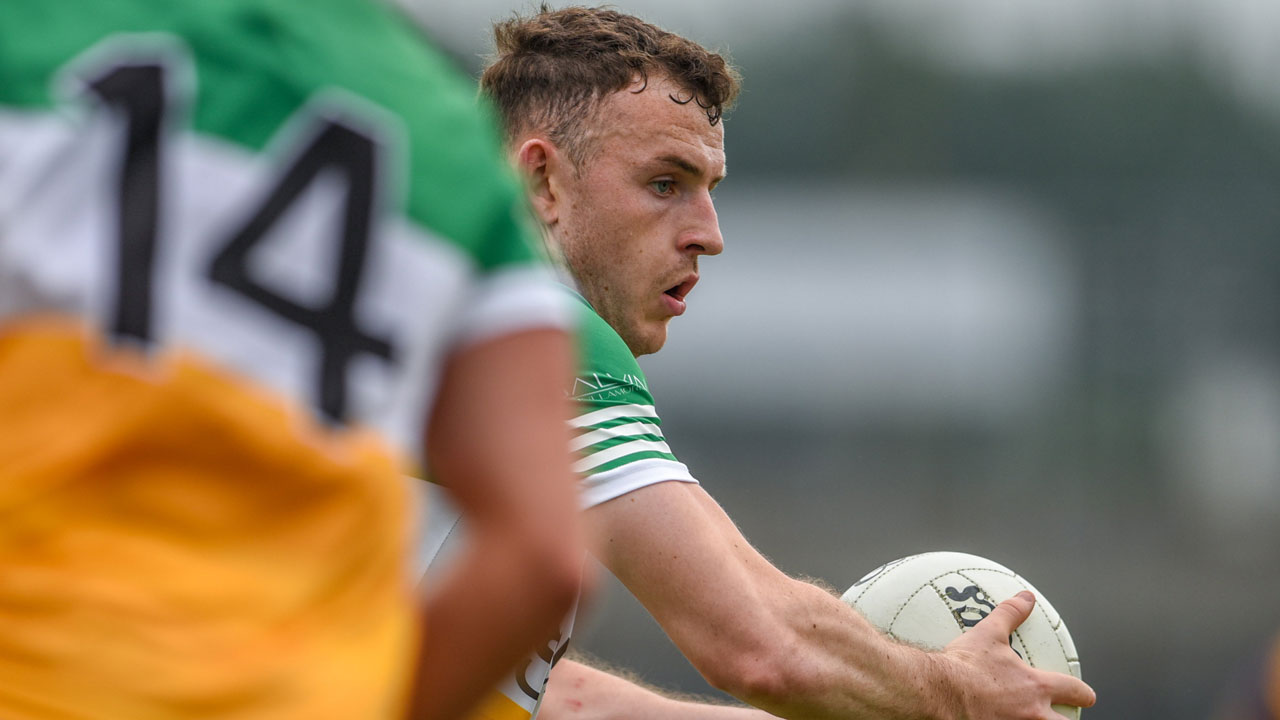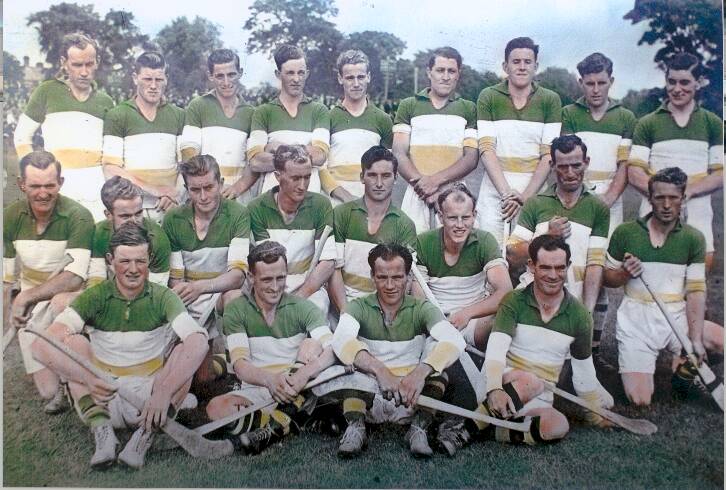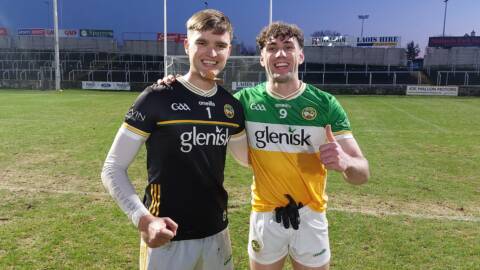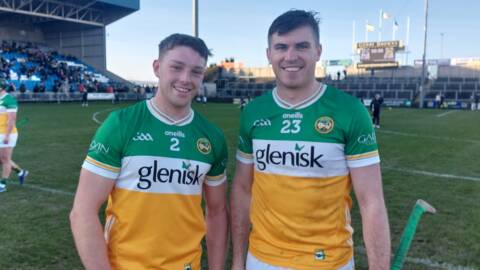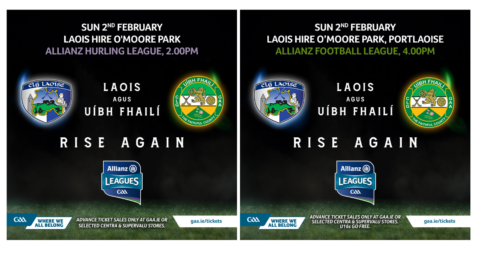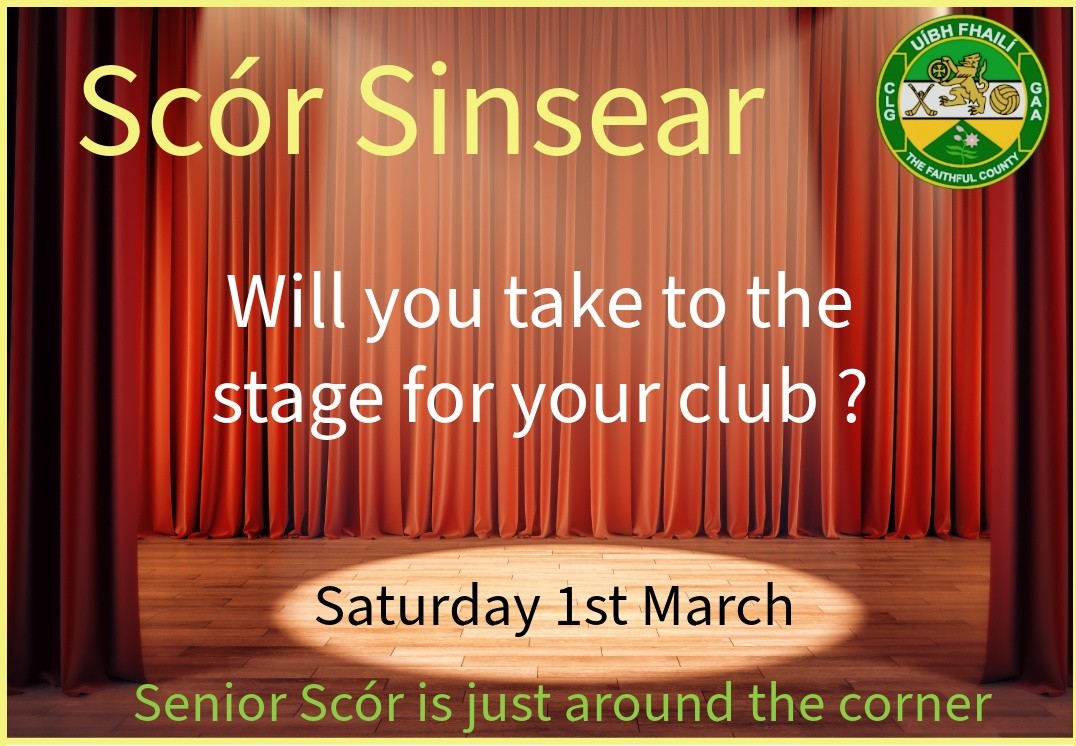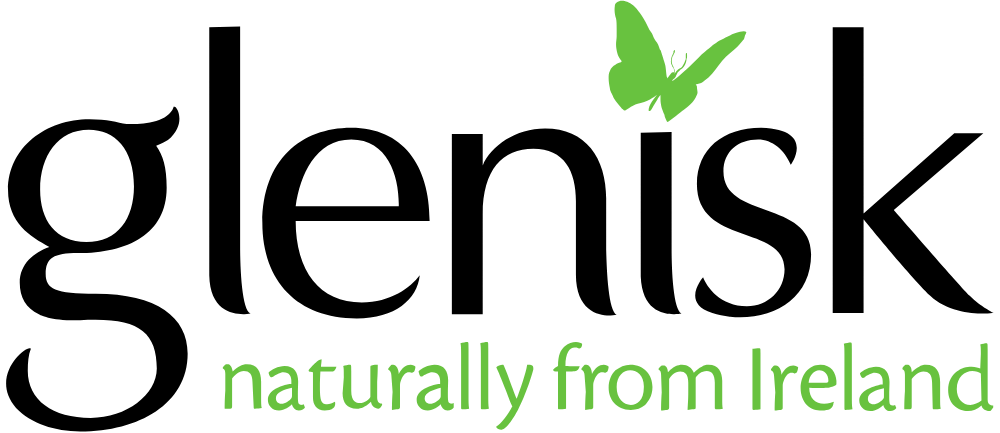Now 84 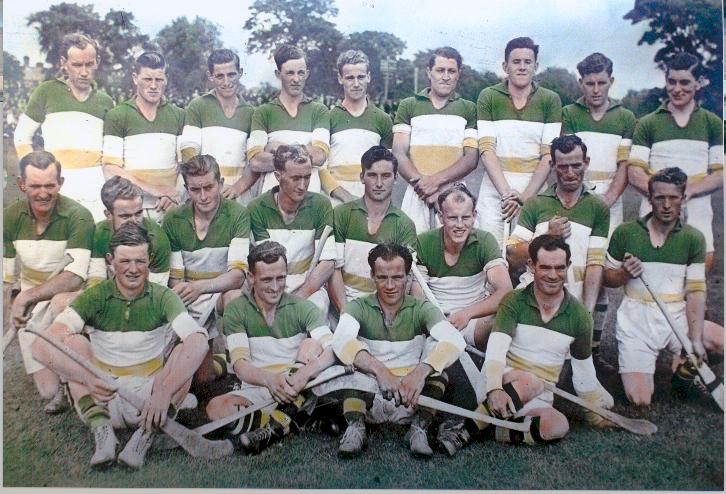 years old and enjoying life in his home parish of Rahan, Sean Grennan (5th from left middle row), Captain of the Offaly Leinster Junior winning side of 1953, recently sat down with his fellow Shamrocks GAA club man Brendan Minnock to discuss his life and times, sharing some stories that younger generations would find difficult to believe.
years old and enjoying life in his home parish of Rahan, Sean Grennan (5th from left middle row), Captain of the Offaly Leinster Junior winning side of 1953, recently sat down with his fellow Shamrocks GAA club man Brendan Minnock to discuss his life and times, sharing some stories that younger generations would find difficult to believe.
In a wide-ranging interview, Sean tells how his GAA career took off; the efforts required to attend training and matches; how he was playing in the band the night they received their Leinster Junior medals; and even how players sometimes stole ash trees to ensure there were enough hurleys.
Hurling for Offaly in the 1950s couldn’t be described as a glamourous pastime. Results were poor and the possibility of the county ever becoming a leading exponent of the sport seemed unrealistic.
But it was the likes of Sean Grennan and his team-mates who kept the flag flying for the Faithful County and, at least, laid the foundations for the generations who came after them.
Over 63 years have passed since Sean captained Offaly to win the Leinster Junior Hurling Championship title and reach the All-Ireland final.
And 66 years have elapsed since he almost inspired Offaly to sneak a Leinster Minor Hurling Championship title, narrowly coming up short against eventual All-Ireland Champions, Kilkenny, in the provincial final.
BM: Sean, tell me about the family you were born into and if your father was interested in GAA?
SG: I was born in 1932, on the 17th of January, down in Rahan Demesne, in the Mill House at the turn. There was Ned, who has passed away, and myself and two sisters Liz and Cait, both of them are still alive, Liz is 87 or 88 years of age in London, and Cait has turned 80 and is in Tullamore.
My father was Patsy. There was no club in Rahan at the time and he used to hurl with Ballinamere. There was three brothers and they were good hurlers but two of them had to scarper with the IRA in the troubles and my father went to America for a year, he was on the run too. But his own father wasn’t well and he came home.
My mother Mary was also from Rahan, she was an O’Brien. So, I’m a cousin of Garrett O’Brien, who was the captain when Offaly won the Under 21 Leinster and All-Ireland finals in 1988.
BM: Have you any idea why your father was ‘on the run’?
SG: The nearest thing he told me about was they were to blow up a train going through Ballykilmurray. They knew the train was going from Athlone to the Curragh and there was a group to come together to blow up the railway, but only a few turned up, and one of them was a German engineer. My father said they went down and loosened the tracks but, whatever happened, the train wasn’t affected.
BM: I presume you went to school in Rahan?
SG: Yes, I went to Rahan School, just a short walk up the road. I went there until I was 13 and a half and got a scholarship for ten pound a year which meant I was free into the Christian Brothers in Tullamore. There was an examination and I came second in Offaly. I could cycle the four or five miles in and out to Tullamore.
There was no-one from Rahan, maybe one or two, who ever went to Secondary School, they couldn’t afford it. Only I won the scholarship I wouldn’t have been able to go either. My father was just a small farmer. Ned was older than me and he got the farm. He couldn’t leave school quick enough.
I remember very little hurling in any National School in those days. There was no such thing as underage hurling in Rahan that I can remember. The first time I ever hurled a competitive game for Rahan I was 14 and I played minor hurling. I think it was 1946 and we played Killeigh and they beat us by a goal and that was it. There was nothing from then for about two or three years, only a Junior team.
BM: So you went to Secondary School in Tullamore, did you hurl there?
SG: Tullamore CBS had no hurling team either. But I played football with them and I got on the Offaly Minor football team, even though there was no football team in Rahan. I played Minor football for Offaly in 1949 and 1950 and was on the Offaly Minor hurling team those two years as well.
BM: Offaly reached the Leinster Minor Hurling final in 1950 and you were on that team?
SG: We had a mighty game against Kilkenny down in Nowlan Park in the Leinster final in 1950. I’m glad to say I was the outstanding player. It was a windy day and we were a goal and seven points to no-score up at half time with the wind. But Kilkenny got four goals in the first quarter of an hour of the second half and there was no score from then on and they won by two points. I was centre back and scored a goal and three points. I got more belts that day that I have ever got since. Kilkenny went on and won the All-Ireland final.
BM: Considering the lack of opportunities at underage, can you remember when you started hurling at adult level for Rahan?
SG: Rahan won the Junior in 1948, but Fr McGahey wouldn’t allow me on the panel because I was too young. But we had a second team and I played in goal and we got to play the no. 1 team in a North Offaly semi-final, but Fr McGahey wouldn’t let us play them and we had to give them a walk-over.
Rahan beat Edenderry in the North Offaly final and then Shannon Harbour in the final in Birr, that was great hurling. That was as good as any senior hurling I’ve ever seen.
BM: But you had progressed to the team by the following year, when you were 17?
SG: I was on the Rahan team that played Drumcullen in the 1949 Intermediate final. I was only 17 then. It was a drawn match and it went to a replay in Birr. We were leading with a few minutes to go. I was nearly killed. I got a hurl straight into my mouth, you can still see the mark and it knocked a tooth out of my head. I was virtually unconscious and of course a fierce row rose. No match finished and both teams were thrown out. I got four stiches.
BM: I see from records that Rahan lost out the next couple of years as well?
SG: We got back to the final in 1950 against Killeigh, and another row rose and the game was called off. There was a replay fixed, but we lost. We scored five goals in the final but let in seven. We played Ballinamere the following year, and they beat us in the semi-final.
BM: Rahan eventually won the Intermediate title in 1952, but I believe you were fortunate to play in that final?
SG: At the end of 1951, I got suspended for 12 months over a Junior football match. We were two points down against Kilcormac, it could have been a North Offaly final, I’m not sure. I had been sent off and I told Paudge Condron to go up the field and try and get a goal. But Kilcormac came up the field with the ball and it was rolling in over the line, and I stepped in and cleared it.
And they suspended me for 12 months. Fr Vaughan said I had caused trouble as a Minor. I didn’t cause any trouble, but when we were lining out against Kilkenny, that time we all stood in our place, and he said to me he never saw me play and I said Father you mustn’t go to many matches, and he had it in for me.
Paddy Doyle was our spokesman at the meeting and he did his best to get me only six months. Paddy was a great man in the club at the time, there was a few of them who kept the thing alive.
My suspension was up the night before we played Shinrone in the 1952 final. I never played hurling and football all year but they put me back in for the final. Shinrone weren’t expecting me to be there. Lucky enough, I had a good game. It was played in Tullamore.
There was nearly no celebrating, that’s the way it was in those days. There was no throwing your arms up the air when you scored a goal, that only came in with television and soccer.
BM: So the fact you were suspended in 1952 and couldn’t play for the Offaly Seniors that year meant you could play for Offaly Juniors in 1953?
SG: Yes, I had already played senior hurling for Offaly and I wouldn’t have been eligible for the Junior team. I played Minor, Junior and Senior in 1950, admittedly only two league matches for the Seniors before Christmas. And I played the following year and then couldn’t play in 1952.
From the time I played first I was never not picked and never taken off unless I was injured and that happened a few times.
Stephen Cloonan was with the County Board and he came to me for the first round of the Leinster Junior Championship against Wicklow in 1953, and he made me captain and put me full-back. We went the whole way to the All-Ireland.
BM: Had you been asked to play for the Offaly Seniors that year?
SG: I had been asked just before we played Wicklow in the first round. I said no thank you. I sensed that this was a grand junior team and that’s how it turned out. There was six from Rahan on the team. From Rahan Demesne alone there was three – Ned, myself and Johnny Lowry – Johnny and Joe Minnock from across the canal and Jim Meacle. All six of us from within a little square mile, we had all grown up together.
BM: Tell me more about your progress with the Offaly Junior team that year?
SG: Dublin were supposed to have a great team, but we hammered them in Tullamore. When we came in off the field, I spoke to Rody O’Brien – he was a great man and dedicated his life to the GAA and didn’t get much thanks for it – he said that we were going to be playing Kilkenny and he said to make sure and train when we were at home. I knew him fairly well and I said “God Rody, can you not get us together for training”.
Offaly had hardly ever been in a final, either hurling or football. He said there was no money, but fair dues they brought us up twice a week to Birr for three weeks and we got to know each other a lot more.
BM: Did you have to cycle to training or were there cars?
SG: A car or two came out from Tullamore and picked us up – there were three from Ballinamere and six from Rahan.
I also remember David Connolly, he was originally from Kilbeggan and had a shop in Rahan. He was a kind of a taxi man and he used to be hired by the Offaly County Board to bring me and some of the other local players to Birr for training.
BM: Offaly defeated Kilkenny by 3-7 to 2-2 in the final, what are your memories of that match?
SG: We had a comfortable enough win that day. The game was played in Portlaoise.
Actually, one thing I can think of, going back to your question about the cars, whoever was to pick up the three O’Briens from Ballinamere – Fr Rory, Mick and Ted – never turned up. They had to get a neighbour or someone to bring them and didn’t arrive until after the game had started. It seemed to be a disaster going out, I think we thought we were going to be beaten without them. Anyway, all three of them were brought it and I think we deserved to win.
BM: You must have been delighted to lift the cup?
SG: Not at all, there was no cup. There was no such thing as a cup then except for an All-Ireland. We just walked off the field.
BM: Surely you would have received medals at least?
SG: We did. We got them at an ordinary céilí in the Courthouse in Tullamore. Any céilí or dance that was there, there could be six or seven hundred people present. It was a big ball room. Half way through the céilí, Fr Vaughan came in with maybe someone else from the County Board.
I was playing that night with the Ballinamere Céilí Band and we had to stop the music, and I walked down and collected my medal and went back up to play with the band after. I don’t think there was any speeches.
BM: After the Leinster final, Offaly played Antrim in the semi-final and I understand you had to travel to Belfast to play them. What would the travel arrangements have been like back then?
SG: That was a great weekend. We went to Dublin on the Saturday evening in cars. We stayed in Barry’s Hotel. We got our breakfast there the next morning and went to the train in Amiens Street and went up to Belfast.
A bus picked us up when we got off the train in the North. There was nowhere open in Belfast. We only got a couple of slices of bread and tea on the way up and a few slices of bread and a sausage and a rasher on the train on the way back. That’s all we got to eat all day. But we won the match easily enough.
We got back to Dublin and there wasn’t enough of cars to bring us all back to Tullamore. Four or five of us decided to stay on in Dublin, we were in no hurry home. We went to the National Ballroom and they wouldn’t let us in. We eventually got a lift home in the early hours of the morning. None of us had much money anyhow.
I remember the papers were selling around that time in Dublin on a Sunday night which you’d never get back home, and we had a whip-around and I bought one and opened it. I told the lads there was a big heading ‘Sean Grennan stars for Offaly’ and someone whipped it out of my hand and tore it. I had to buy another copy the next morning, but I don’t know what it said about the match!
BM: Offaly scored five goals and no points in the semi-final against Antrim, why do you think there were unusual score lines like that at the time, was it down to the style of hurling?
SG: There was an awful lot of ground hurling back then. You got rid of the ball in a second, so they didn’t have time to tackle you. You’d have been killed in those days if you were rising the ball like now. This thing you see now of five or six players rooting around for the ball, there would have been legs broken left, right and centre in those days if you did that.
The first thing you did is you went in and pulled. The ball might have been roughly there somewhere, but a lot of fellas wouldn’t have been worried if they got the ball or not.
BM: I presume that ‘style’ led to a lot of broken hurleys! By the way, if money was tight, how did you all afford hurls and gear back then?
SG: We had a great hurley maker in Rahan – Johnny Keyes. We used to bring the ash trees up to him. I have 20 ash trees in in my back garden now, he’d love that!
There was a great racket going on at the time; you’d be watching out for where there was an ash tree and you go that night and cut the bloody thing down, and be gone with it. There was a lot of ash trees around. I remember my brother Ned and myself looking for good ash trees, especially one growing out from the side of a bank where there was a drain and there’d be a turn on it, which was great for the grain. We went through a lot of hurls that time, we used to have to nail them together.
BM: Back to the hurling and, unfortunately, Offaly lost the All-Ireland final to Tipperary in Birr. I have a photograph of you leading the Offaly team in the parade, there seemed to be a huge crowd at the game?
SG: Absolutely jammed solid. Supporters came from all over Offaly, I know people cycled there from everywhere in the county. Of course, all north Tipp came in. The hair stood on the back of my neck leading around the team in the parade. There was huge excitement. The Tullamore Pipe Band were in front of us.
Tipperary mowed us, knocked out Darcy in the first few minutes. Paddy Landy scored a goal for us from a free and the referee said the whistle wasn’t gone. Of course, it was saved then.
There was to be a Galway ref and he couldn’t turn up. Actually, the referee was from Westmeath and wasn’t he a captain in the army in Thurles and one of the Tipperary players was a Sergeant in the army stationed with him. They knew one another just like me and you. And he rode us. You always if you lose blame the ref, but if you could have a video of that match, you could see that he robbed us.
BM: Meanwhile, Rahan were doing well in the Offaly Senior Championship and beat reigning champions Drumcullen in the semi-final?
SG: There wasn’t one in the whole of Offaly gave us a chance of beating Drumcullen in the semi-final, including myself. I was really surprised that it was reasonably easy in the end.
There was no-one from Coolderry at that match, there was such a row in the county final in the year before, there was talk that Coolderry mightn’t play Drumcullen in the final.
But then when we beat Drumcullen, there was a three or four week gap and they got back training and that’s how they came to beat us. Coolderry got four goals in the final and some of them were soft.
That was a pity, really. We had brought in Pat O’Connell, who refereed an All-Ireland final, to help us and we did a bit of training in a pitch in Tullamore. It was very simple training compared to what they do now. We ran around the pitch, then maybe ‘leap-frogs’ and hurling. I don’t think the young crowd do ‘leap-frogs’ any more!
BM: Why do you think Rahan could not have built on that achievement over the next few years, especially with six players on the Junior panel?
SG: No, because we were gradually getting worse. About 1955 or ’56, we played Tullamore and the winners were to play Drumcullen in Birr, but there was no training or anything proper and they beat us well.
I said to Noel McGee they hadn’t a hope in Birr but up they went and beat Drumcullen. All Tullamore played their hearts out.
It was the same with a lot of country teams, from October to nearly April you never stood in a field except maybe on a Sunday. How could you, it was dark at 5 o’clock and there was no lights. And they were all nearly farmers.
BM: You mentioned to me before that you also lost a league final to Antrim in 1953?
SG: We hurled the week after beating Antrim in the ‘B’ final in the league. I thought Fr Vaughan and the selectors would pick half the Junior team. We were playing Antrim again and it was their same team because they didn’t have a senior team that time. They came down and everyone thought we had nothing to do only beat them. Only four of our junior team were picked, myself, Brendan Dolan, Johnny Minnock and Mick Spain, and Antrim beat us in Birr.
It was the following Sunday that we lost to Tipperary, and the following week we lost the county final to Coolderry, so that was three finals in a row I lost. I was only 21 and thought I would win lots of finals before I retired, but I never did.
BM: But you kept playing with Offaly for the rest of the decade didn’t you?
SG: I did, until I emigrated in 1959. I played every year before that. But Offaly won nothing in hurling or football throughout the 1950s, except the O’Byrne Cup when Noel McGee was captain. That was how low we got.
BM: And football was making progress in Rahan in the 1950s?
SG: We beat Pullough in the Junior football final in 1956. We were hard to beat. We weren’t good footballers, but we had great anticipation from the hurling, whereas Pullough only played football.
None of us could take a free. It was nearly all goals we scored. Sometimes, if we got a 21 yard free, I would take it and roll it along the ground and the lads would charge in, and once it had gone far enough, nine times out of ten they would crash it over the line. I think we scored six goals and only two points in the final.
BM: A Blackwood Rovers team was formed in the parish around that time and replaced Rahan. Why did that happen?
SG: I don’t really remember. Blackwood got out a team just before I left. I don’t know what happen in 1960, I don’t think Rahan had any team and that’s why a lot of the Rahan players went and hurled with Blackwood. But I never hurled with them.
BM: Why did you leave for England?
SG: I was working as a clerk for Jack Thomas for six or seven years, he had a garage at Ballycowen Bridge. I had worked in Boora and had worked in land reclamation for six or seven months around Killina. Anything to get money. My girlfriend was in London, and I felt it might be time to settle down with her. She was a nurse in London. Her name was Maureen O’Neill from Davitt Street near O’Connor Park.
I went to England two days after the drawn All-Ireland hurling final between Kilkenny and Waterford in 1959. Walking out of Croke Park that day, I bet a pound with Terry Connolly, who was from Kilkenny but living in Rahan, that Waterford would win the replay.
Waterford did win the replay – it’s the last time they won the All-Ireland – and of course I came home the following summer and asked Terry Connolly for my pound. Terry told me he had given it to my brother Ned, and so I asked Ned for it but he said he had it spent, so I made no money out of Waterford winning the replay!
Anyway, I was recruited by London transport as a bus conductor. They paid our fare to Dublin, and even paid our fare to London. Otherwise, I wouldn’t have been able to do it.
London was a huge place compared to anywhere around here. I was a conductor for six months and then I went driving and I did seven years as a bus driver. By then we had a few kids and the hours were awkward. So then I got into the Civil Service over there. The interview was for the Inland Revenue, and one of the questions was I a British citizen. I didn’t want to tell him I was a British citizen, I said I don’t know whether I am or not…
So I got the job. I did three or four years with the Inland Revenue and someone said why don’t I go for teacher training. I was called for interview at St Mary’s College, there was a huge number of Irish there. I thought I’d be good at it because I had five kids at that time. But I couldn’t control kids in the class. It was a primary school.
Anyway, I was so tensed up and worked up, I wasn’t even able to walk around the classroom. It was only four or five hours a day, but I was a mental and physical wreck. So I went back to the Revenue again. I retired in 1994, when I was 62 and when the missus retired soon after that we came home.
BM: Was it always your intention to come home?
SG: From the day I went, I was always planning on coming home. I came back for a year in ’73, the schools got disrupted in England and were on strike for two or three days a week. But I ended up going back.
That’s the way most people look on it. This is where I wanted to be. Even right now. I like London, but I love it here. There is a room over there for me in my daughter’s house if I want to go back. I go over there for a lot of the winter every year. When I’m over there, it’s not like years ago, I’m able to stay in touch with all the Offaly scores on the internet. I can even get up the Rahan Parish bulletin and the newspapers.
BM: I remember that when you returned from England, you got involved with the club straight away, isn’t that right?
SG: When I came back, I thought I had nothing to do only be manager of the Senior team. I wanted to win a Senior title in three years. Like I thought I would be a great teacher, I thought I would be a great manager. But it didn’t work out. So I gave that up. And I went back in with underage teams with Tom Dunne, second in command, I could do that alright.
BM: Aside from the hurling, I know you have a great love of traditional music and performed a lot locally. You mentioned earlier about performing with the Céilí Band on the night you received the Leinster medals. How did you learn to play music, and how did your interest develop?
SG: I learnt to play myself, I never had a teacher until I went to England and the Teacher Training College. But I was at least 30 years of age then.
I started out when I saw a small little accordion in a pawn shop in Tullamore. There were only eight basses on it, whereas the last one I got had 120 basses on it. It was on sale for four pounds. My mother didn’t have four pounds, but I kept on to her and she got the money from somewhere and bought it. We brought it home on the ass and cart. By that night, I could play Old Mayo and Galway Bay and sing the words as well.
I learned it all by ear. After two or three years, I got a bigger accordion and started playing in Rahan Hall and places like that and got five shillings, which was a fair bit of money at the time. Eventually, Dan Cleary asked me to join the Ballinamere Céilí Band. It was mainly for the waltzes, they had great accordion players already. We went all over Ireland, as far as Cork, Kerry and Bundoran. We had a Volkswagen station wagon and we’d all pile into that, six or seven of us. We were a very well-known group at the time.
After I went to England, I played all over London, in Irish pubs and Irish clubs, as a one-man band. I still like playing the accordion. I play in Nursing Homes. And I love listening to it. Mainly Irish folk songs, I have nearly 200 songs written out, I’ll keep going as long as I can.
BM: Sean, it was great to have an opportunity for such a long discussion with you. It’s great that you were able to remember so much about the GAA scene back in the 1950s. Hopefully, you continue to enjoy good health for many years to come.
By Offaly PRO Fri 4th Nov